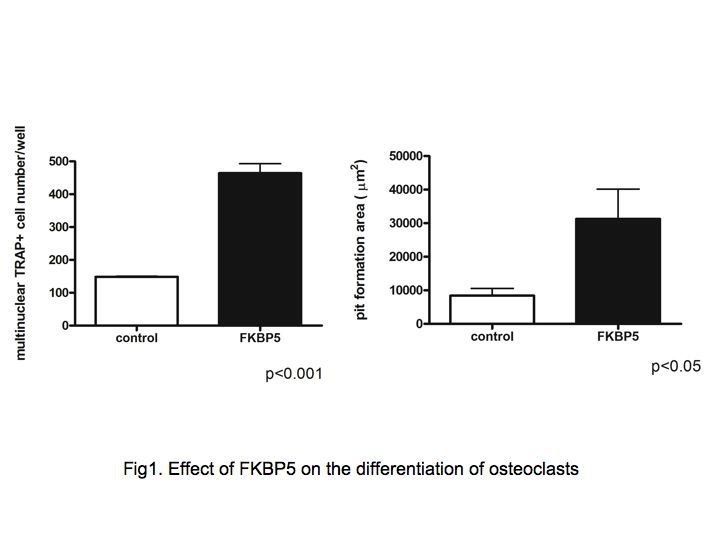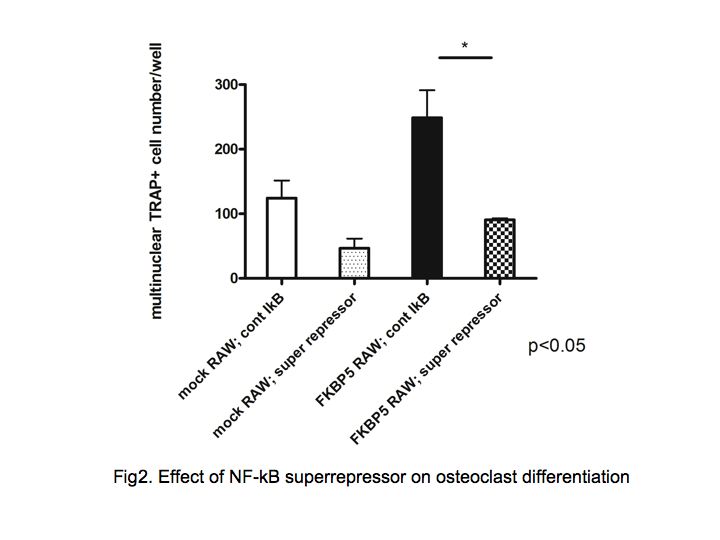Session Information
Session Type: Abstract Submissions (ACR)
Background/Purpose: RA is a chronic, systemic inflammatory disease characterized by the destruction of bone in the joints. Moreover, it is well appreciated that systemic osteoporosis is common in RA. Previous studies have disclosed the enhanced expression of FK506 binding protein 5 (FKBP5 ) mRNA in bone marrow CD34+ cells in RA. Since bone marrow CD34+ cells are precursors of osteoclast, it is possible that overexpression of FKBP5 might affect osteoclastgenesis. The current studies therefore explore the influences of FKBP5 in osteoclast differentiation from murine RAW264.7 cells..
Methods: We generated stable transfectant clones of FKBP5 gene of murine macrophage RAW264.7 cell line, using a plasmid containing pCAGGS-FKBP5 (murine)-IRES-eGFP-pA-Neo. FKBP5 expression was confirmed by Western blotting and RT-PCR. Osteoclast differentiation was induced by stimulation with receptor activator of nuclear factor kappa B ligand (RANKL) and was evaluated by TRAP staining and pit formation assay.
Results: FKBP5 transfectant clones of RAW264.7 cell line generated a higher number of TRAP positive multinucleated cells with higher activity of pit formation than mock transfentants (Figure 1). The enhancement of osteoclast differentiation of FKBP5 transfectants was only partially reversed by transfection of a vector bearing a mutant form of IkB ( NFkB super-repressor) (Figure 2). Consistently, the results of luciferase assay and NFkB p65 ELISA revealed only very modest increase in NFkB activity in the presence of RANKL in FKBP5 transfectants compared with mock transfectants. Finally, glucocorticoid enhanced not only the osteoclast differentiation from nontransfectant RAW264.7 cells, but their expression of FKBP5 mRNA in a dose-dependent manner.
Conclusion: These results indicate that FKBP5 promotes osteoclast differentiation by a mechanism distinct from NFkB activation. Moreover, the data also suggest that FKBP5 might play a role in the development of osteoporosis in RA as well as in glucocorticoid-induced osteoporosis.
Disclosure:
M. Kimura,
None;
T. Nagai,
None;
R. Matsushita,
None;
A. Hashimoto,
None;
T. Miyashita,
None;
S. Hirohata,
None.
« Back to 2012 ACR/ARHP Annual Meeting
ACR Meeting Abstracts - https://acrabstracts.org/abstract/role-of-fk506-binding-protein-5-in-osteoclast-differentiation/


